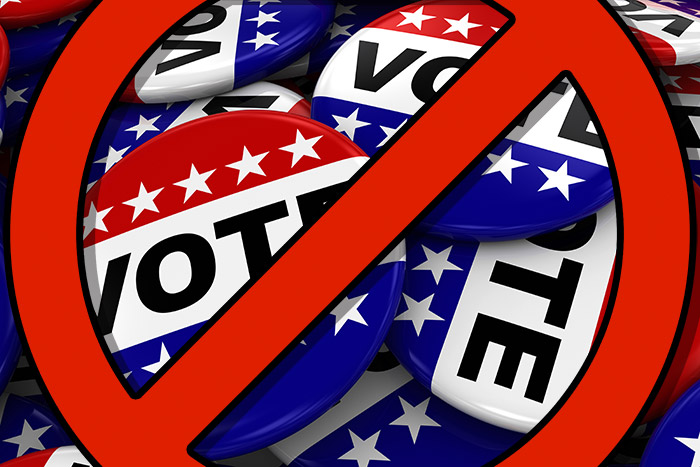I’m not voting for Biden. I’m not voting for Trump. I’m not voting for Jorgensen. I’m not voting for anyone, comprende?
And why would I? I’ve already voted twice in my life: first, in 1965, when I was too dumb to understand how voting works (actually fails to work); second, in 1976 as part of a joke on my leftist colleagues at the University of Washington. Enough is enough.
Note, however, that if I were to vote, my vote would have an effectively zero probability of affecting the outcome of the election and hence would be a complete waste of time except as a way for me to signal my membership in one tribe or another.
Regardless of its actual futility, voting signals that one has the moral arrogance to believe that he or she has a right to participate in making rules binding on people who do not desire to be so bound; and hence it sends an intrinsically immoral and impudent signal about how one wishes to relate to one’s fellow human beings.




